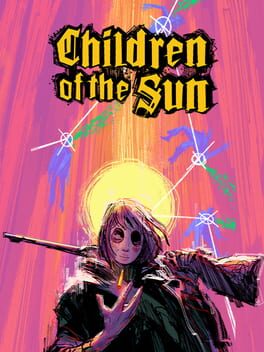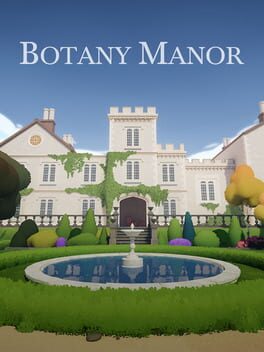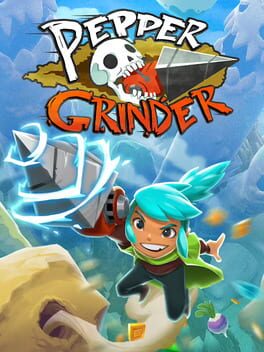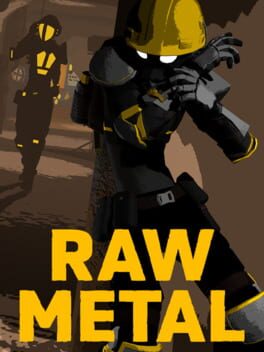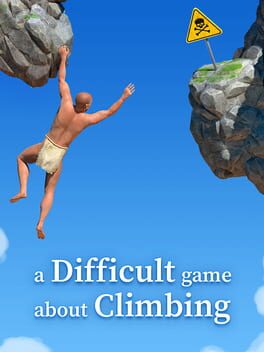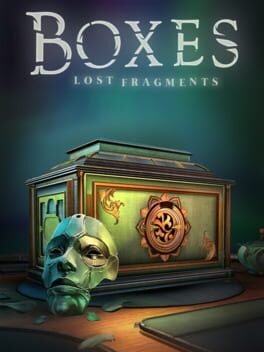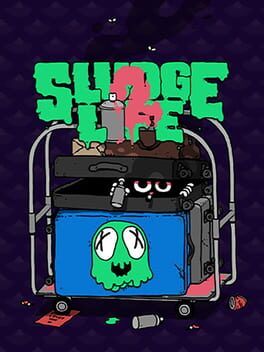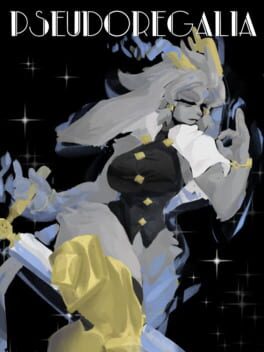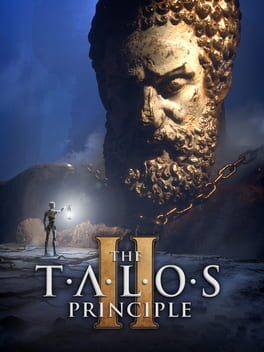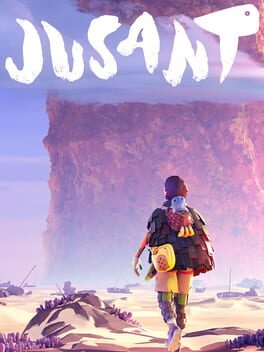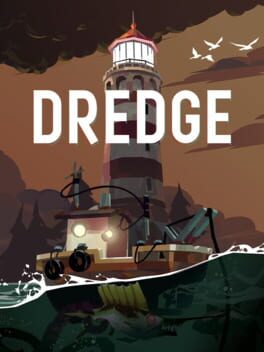Biggs_hoson
2024
Intense layers of audiovisual crunch and stylistic eccentricities, along with a killer elevator pitch concept, were more than enough to pull me in, but the core game felt to simplistic to really hold my attention for the short runtime.
Children of the Sun is not subtle about its influences (as if it's subtle about anything else) and as a result I felt called to this game because those sources were instantly recognizable to me. For example, the appearance of the "NMH Motel" in the game was all the confirmation I needed to know that me and the developer were going to be speaking the same language.
However, for as much as I dig the aesthetic and the grunge, Children of the Sun holds itself back from giving me the kind of gory unrestrained fun of the Devolver titles that it draws from.
The big issue: is this a puzzle game? The answer is no but the game contradicts itself on this point. For instance, you're given unlimited time and no pressure to mark your kills, but a lot of levels have targets hidden from view that you must find in situ, but then those targets stay marked once you do find them so you can plan on a failed attempt. No puzzle game should make you take failed attempts to gather information, but information in this game is so valuable because the mechanics demand you have an overarching plan. When my planning is thorough, the execution feels tedious, when I try to improvise I'm punished for a lack of planning.
This conflict actually plays out in a couple of other Devolver titles, incidentally. Take Hotline Miami, a great game but anyone would admit that the hardest levels are a bit tedious, that game really sings when you're able to play by reacting to the chaos correctly rather than going through your preset motions. An even better example is Ape Out, that game randomizes the levels to force you to only play reactively, to find a path through the chaos. It's jazz.
A cymbal crashes when I get a kill in this game, same as in Ape Out, but I still don't feel the beat.
Children of the Sun is not subtle about its influences (as if it's subtle about anything else) and as a result I felt called to this game because those sources were instantly recognizable to me. For example, the appearance of the "NMH Motel" in the game was all the confirmation I needed to know that me and the developer were going to be speaking the same language.
However, for as much as I dig the aesthetic and the grunge, Children of the Sun holds itself back from giving me the kind of gory unrestrained fun of the Devolver titles that it draws from.
The big issue: is this a puzzle game? The answer is no but the game contradicts itself on this point. For instance, you're given unlimited time and no pressure to mark your kills, but a lot of levels have targets hidden from view that you must find in situ, but then those targets stay marked once you do find them so you can plan on a failed attempt. No puzzle game should make you take failed attempts to gather information, but information in this game is so valuable because the mechanics demand you have an overarching plan. When my planning is thorough, the execution feels tedious, when I try to improvise I'm punished for a lack of planning.
This conflict actually plays out in a couple of other Devolver titles, incidentally. Take Hotline Miami, a great game but anyone would admit that the hardest levels are a bit tedious, that game really sings when you're able to play by reacting to the chaos correctly rather than going through your preset motions. An even better example is Ape Out, that game randomizes the levels to force you to only play reactively, to find a path through the chaos. It's jazz.
A cymbal crashes when I get a kill in this game, same as in Ape Out, but I still don't feel the beat.
2024
Brief, light, pleasant, Botany Manor has a fantastic set up and delivers on that premise but lacks any ambition to go beyond and become more than the sum of its parts.
Being given a book of blank pages and a gorgeous mansion to explore is intensely charming. Each page represents a flower with unique conditions for blossoming, which you're tasked with first deducing and then recreating within the grounds of the manor.
The puzzles have an escape room feel, key information is scattered around in notes and pages that you must cross reference until you puzzle out what your little sprout needs to grow. These puzzles are all delightful, each flower is fickle in its own whimsical way, but the logic is rooted in real principles of botany to help guide your intuition. Light, soil, temperature and even sound are the lingua franca of the floral world.
There's a feature to place relevant clues on a flower's page, which then "lock in" once you have the full set; it's usefulness is middling, you can't view information remotely and the puzzles don't have much overlap anyway. This feels like a half-hearted gesture at Return of the Obra Dinn's genius information managing system.
As is typical for this type of silent first person indie game the story and background must be inferred rather than shown directly. This is done through notes and objects that have varying degrees of subtlety regarding the themes of the game. This is where the game falters for me, not that I dislike the themes or feel that they're not important or emotional, but rather that the game is lacking a watershed moment that ties gameplay and narrative together as a cohesive Experience.
That said, ultimately it's a short enjoyable game that I didn't regret my time playing, so maybe you won't either.
Being given a book of blank pages and a gorgeous mansion to explore is intensely charming. Each page represents a flower with unique conditions for blossoming, which you're tasked with first deducing and then recreating within the grounds of the manor.
The puzzles have an escape room feel, key information is scattered around in notes and pages that you must cross reference until you puzzle out what your little sprout needs to grow. These puzzles are all delightful, each flower is fickle in its own whimsical way, but the logic is rooted in real principles of botany to help guide your intuition. Light, soil, temperature and even sound are the lingua franca of the floral world.
There's a feature to place relevant clues on a flower's page, which then "lock in" once you have the full set; it's usefulness is middling, you can't view information remotely and the puzzles don't have much overlap anyway. This feels like a half-hearted gesture at Return of the Obra Dinn's genius information managing system.
As is typical for this type of silent first person indie game the story and background must be inferred rather than shown directly. This is done through notes and objects that have varying degrees of subtlety regarding the themes of the game. This is where the game falters for me, not that I dislike the themes or feel that they're not important or emotional, but rather that the game is lacking a watershed moment that ties gameplay and narrative together as a cohesive Experience.
That said, ultimately it's a short enjoyable game that I didn't regret my time playing, so maybe you won't either.
2024
This game brought me back to the old days of flash games, though the polish here is obviously at a much higher level. This game has great 'flow' occasionally broken up by alternate mechanics that are fun but a little less so than the core, but help each level feel unique.
The bosses are unfortunately the lowlight, being difficult and repetitive is not a good combination.
I gotta mention the soundtrack, it really stood out to me and brought the energy of the whole game up.
The bosses are unfortunately the lowlight, being difficult and repetitive is not a good combination.
I gotta mention the soundtrack, it really stood out to me and brought the energy of the whole game up.
2024
Normally I wouldn't make a review for a dropped game, but it's rare for me to quit a game that I didn't start explicitly as a tourist.
I've played up to the second boss fight, which feels like enough to understand the shape of the game for a critique. I'm not a fan of roguelikes, but Raw Metal only appears like one on the surface. A session of the game is less of a "run" and more of a "dive"; each dive might have a specific purpose: gathering new gear, improving your gear, retrieving lost gear, or just building up funds, all in service to the only true goal of diving deeper, even allowing you to spend money to skip floors.
On paper, I really like this structure, it's comparable to SIFU (surely a source of inspiration) unique loop of polishing previous levels to position you for success in the next. There's a tension to wagering the best gear your scrounged together against your skill to make it further and in situ you can push your luck by burdening yourself with more and more precious gear. In combat, you're incredibly frail (three strikes and you're out) but highly effective at overwhelming your enemy making for quick scrappy fights (side note: Bosses break this pattern just by being very tanky, but you do get a second wind, but so do they, so it's a wash).
That's all I what I believe the game wants to be, is trying to be, but it can't get there despite the great ideas, and even though its presentation is great, the menus are clean and professional, and the core combat feels good, there's one thing that's keeping me from playing any more. It's fucking boring.
The game is completely homogeneous, each encounter doesn't feel appreciably different from any other. There is only one playstyle, the gear I gain adjusts my stats by centimetres, consumable items are mostly ineffective, all guards swing their baton once and then get pummelled into the wall the exact same way the last dozen did. Maybe I have to fight two at once, but then the cracks in the combat system really start to show. Beyond that scenario I am on cruise control most of the time.
The only exception are the bosses, and I would love to do these fights more, but I cannot; I have to get my gear back, or I have to fill up my piggy bank so I can afford another couple rematches I want to like this game but it does not respect my time. In SIFU, if I do a level perfectly, I never have to do it again, Raw Metal just does not care.
At least they really nailed the feeling of being sent back to the mines.
I've played up to the second boss fight, which feels like enough to understand the shape of the game for a critique. I'm not a fan of roguelikes, but Raw Metal only appears like one on the surface. A session of the game is less of a "run" and more of a "dive"; each dive might have a specific purpose: gathering new gear, improving your gear, retrieving lost gear, or just building up funds, all in service to the only true goal of diving deeper, even allowing you to spend money to skip floors.
On paper, I really like this structure, it's comparable to SIFU (surely a source of inspiration) unique loop of polishing previous levels to position you for success in the next. There's a tension to wagering the best gear your scrounged together against your skill to make it further and in situ you can push your luck by burdening yourself with more and more precious gear. In combat, you're incredibly frail (three strikes and you're out) but highly effective at overwhelming your enemy making for quick scrappy fights (side note: Bosses break this pattern just by being very tanky, but you do get a second wind, but so do they, so it's a wash).
That's all I what I believe the game wants to be, is trying to be, but it can't get there despite the great ideas, and even though its presentation is great, the menus are clean and professional, and the core combat feels good, there's one thing that's keeping me from playing any more. It's fucking boring.
The game is completely homogeneous, each encounter doesn't feel appreciably different from any other. There is only one playstyle, the gear I gain adjusts my stats by centimetres, consumable items are mostly ineffective, all guards swing their baton once and then get pummelled into the wall the exact same way the last dozen did. Maybe I have to fight two at once, but then the cracks in the combat system really start to show. Beyond that scenario I am on cruise control most of the time.
The only exception are the bosses, and I would love to do these fights more, but I cannot; I have to get my gear back, or I have to fill up my piggy bank so I can afford another couple rematches I want to like this game but it does not respect my time. In SIFU, if I do a level perfectly, I never have to do it again, Raw Metal just does not care.
At least they really nailed the feeling of being sent back to the mines.
Took one look at this game and said "oh streamer ragebait climber bennett foddy rip off" and nearly passed on it, but I noticed it was by the same solo dev as punch a bunch, which ended up being quite rewarding once I got used to the strange controls, so I figured I'd see if that was the case here as well.
I was then completely walled on the game's first proper obstacle, a simple jump. The controls felt weird, the climb back required an intended but precise skip, I could do the jump but I'd fall right before the next safe point.
I quit the game then and there.
Then the thought of "losing" to this game crept its way into my head; "I know I'm good at games, I Got Over It, with Bennett Foddy, I surely I can do the tutorial of its weird clone. That's it I'll beat the tutorial and then uninstall this stupid game."
After being stuck for more days of casual attempts, I finally overcame that first hurdle, and now I had some confidence, the controls had become comfortable. The exact same pattern as Punch A Bunch and its weird physics punching repeated itself.
All that to say, it's okay. It's obviously much shallower than Getting Over It (no ethos to be found here, just climbing) but despite the name it prioritizes creating fun climbing challenges rather than being as balls-hard as possible. The regularly spaced resting pools, and other well placed handholds, made me feel as though I was being (somewhat) protected from the brutal reality of vertical ascension; to begin with, as long as you can chain solid grip to solid grip there's virtually no risk of failure. This gives a strong feeling of fairness to the chaotic physicsy world; anything more precarious, like balancing a hammer on a cliff, would force the game to lock itself in a static state, or else become a physics based casino.
So this game surprised me with how much I enjoyed it, even though I had already seen the speedrun before committing to play it did nothing to lessen the enjoyment of going through and doing it myself. I think we needed a pretty good game about climbing.
I was then completely walled on the game's first proper obstacle, a simple jump. The controls felt weird, the climb back required an intended but precise skip, I could do the jump but I'd fall right before the next safe point.
I quit the game then and there.
Then the thought of "losing" to this game crept its way into my head; "I know I'm good at games, I Got Over It, with Bennett Foddy, I surely I can do the tutorial of its weird clone. That's it I'll beat the tutorial and then uninstall this stupid game."
After being stuck for more days of casual attempts, I finally overcame that first hurdle, and now I had some confidence, the controls had become comfortable. The exact same pattern as Punch A Bunch and its weird physics punching repeated itself.
All that to say, it's okay. It's obviously much shallower than Getting Over It (no ethos to be found here, just climbing) but despite the name it prioritizes creating fun climbing challenges rather than being as balls-hard as possible. The regularly spaced resting pools, and other well placed handholds, made me feel as though I was being (somewhat) protected from the brutal reality of vertical ascension; to begin with, as long as you can chain solid grip to solid grip there's virtually no risk of failure. This gives a strong feeling of fairness to the chaotic physicsy world; anything more precarious, like balancing a hammer on a cliff, would force the game to lock itself in a static state, or else become a physics based casino.
So this game surprised me with how much I enjoyed it, even though I had already seen the speedrun before committing to play it did nothing to lessen the enjoyment of going through and doing it myself. I think we needed a pretty good game about climbing.
2023
The way this game commits to a single mechanic that never changes but still makes me feel like I'm always discovering new uses for it through the whole game is a massive success. Being taught, wordlessly, an entire new aspect of the mirror's ability I had never even considered was a clear 'Wow' moment for me, and in a way broke the game into a new genre.
Ugly's plot is structured like a mobius strip, a nice little loop with a twist at the end, and then you go back around again to finish where you started.
I can't forget to mention the art, each room is so elaborately detailed and completely unique, the sheer volume of it is staggering.
So even with all that praise I'm interested in the question of why this game hasn't gotten more attention. It really reads at a distance as quite an outdated kind of game due to the art style and the single room puzzles, and to be reductive that's all it is, the best newgrounds flash game that somehow came out in 2023.
Ugly's plot is structured like a mobius strip, a nice little loop with a twist at the end, and then you go back around again to finish where you started.
I can't forget to mention the art, each room is so elaborately detailed and completely unique, the sheer volume of it is staggering.
So even with all that praise I'm interested in the question of why this game hasn't gotten more attention. It really reads at a distance as quite an outdated kind of game due to the art style and the single room puzzles, and to be reductive that's all it is, the best newgrounds flash game that somehow came out in 2023.
Not the first to do this concept but the first one I've played. What I appreciate about this game is it gives itself license to use magic, future tech, impossible space etc but always remains pretty grounded in mechanical principles that makes real world puzzle boxes function. Even though the boxes are just digital shells they maintain a certain verisimilitude that has two benefits: first, gives the interaction a certain logic the player can follow, so pixel hunting and random clicking is massively reduced but still present. Second, the core appeal of a physical puzzle box is the intricate engineering; any game trying to simulate the real thing needs to hold onto that appeal as tightly as possible, or else it's just a very boring point and click adventure.
The puzzles themselves are breezy, they feel "loose" in the sense that you can mostly fumble through them without much intense thought, and while there are no repeated puzzles exactly, a good few are essentially the same process in a novel arrangement. It's not the worst condemnation, but it does leave the game feeling somewhat lacking in substance, especially with the bare bones, unfinished story.
The puzzles themselves are breezy, they feel "loose" in the sense that you can mostly fumble through them without much intense thought, and while there are no repeated puzzles exactly, a good few are essentially the same process in a novel arrangement. It's not the worst condemnation, but it does leave the game feeling somewhat lacking in substance, especially with the bare bones, unfinished story.
2021
Starts pretty bad, then gets better as it goes and peaking at the DLC.
The early game is slow, unsubtle and entirely too reliant on the "gotta fight to find my wife" tough guy shtick that dominated games of this era. Eventually, Wake develops some self awareness, the gameplay fills out with equipment choices and the plot picks up enough momentum to shake off the dated tropes and deliver on the admittedly cool core premise.
In terms of combat, it's just enough to be serviceable, but barely. Managing light and ballistic damage simultaneously is more interesting than either mechanic separately. Overall it feels clunky, far too often did I find myself shouting at Alan to do what I ask of him, while an enemy appears behind me right when my invisible stamina bar has run out.
There is a level of dynamism injected by the physics engine, something that Remedy would lean into later on with Control. The poltergeisted objects are so fun as enemies, it now seems logical to have them as a core ability in Control.
The DLC is worth a special mention. In a game that already felt like the developers were getting better as they made the game, the DLC episodes gave them the freedom to lean into the game's best aspects and, to use a technical term, go hog wild with the level design. The DLC also trims off the fat of the main game, dialing into that premise of an author trapped in his own story, no more damsels or macguffins to chase around. Wake rallying against the reality he created for himself is narratively, ludically and emotionally the core of the story and somehow its only fully developed in post hoc add on content, go figure.
The early game is slow, unsubtle and entirely too reliant on the "gotta fight to find my wife" tough guy shtick that dominated games of this era. Eventually, Wake develops some self awareness, the gameplay fills out with equipment choices and the plot picks up enough momentum to shake off the dated tropes and deliver on the admittedly cool core premise.
In terms of combat, it's just enough to be serviceable, but barely. Managing light and ballistic damage simultaneously is more interesting than either mechanic separately. Overall it feels clunky, far too often did I find myself shouting at Alan to do what I ask of him, while an enemy appears behind me right when my invisible stamina bar has run out.
There is a level of dynamism injected by the physics engine, something that Remedy would lean into later on with Control. The poltergeisted objects are so fun as enemies, it now seems logical to have them as a core ability in Control.
The DLC is worth a special mention. In a game that already felt like the developers were getting better as they made the game, the DLC episodes gave them the freedom to lean into the game's best aspects and, to use a technical term, go hog wild with the level design. The DLC also trims off the fat of the main game, dialing into that premise of an author trapped in his own story, no more damsels or macguffins to chase around. Wake rallying against the reality he created for himself is narratively, ludically and emotionally the core of the story and somehow its only fully developed in post hoc add on content, go figure.
2023
To be as reductive as possible for a second, in this game you just walk around and click on stuff. The game is in the setting, presentation and writing your only challenge is ambling around to find all the "content".
But really, it is a very intricately crafted ugly little world. the humour layers on itself, building on self references littered around the game, most gags are singular but the best ones require making connections between events miles apart in the game world, trusting the player to pay attention and find the punchlines themselves.
Immersing yourself into this egregiously suckass place, really wallowing in the counterculture, is what makes the experience worth it. I really felt this game speak a rebuttal to the irony-poisoned nihilism you see in similar works. This isn't just depression porn, beneath all the obscenity and societal rot are sincerely resisting the sub-orbital trajectory of their shitty lives.
But really, it is a very intricately crafted ugly little world. the humour layers on itself, building on self references littered around the game, most gags are singular but the best ones require making connections between events miles apart in the game world, trusting the player to pay attention and find the punchlines themselves.
Immersing yourself into this egregiously suckass place, really wallowing in the counterculture, is what makes the experience worth it. I really felt this game speak a rebuttal to the irony-poisoned nihilism you see in similar works. This isn't just depression porn, beneath all the obscenity and societal rot are sincerely resisting the sub-orbital trajectory of their shitty lives.
2023
You'll either bounce off it in the first couple hours or stay and fall in love. The early part of the game feels shallow and wrong, up until a certain moment when the entire game is recontextualized, so much so that that shallowness might actually be intentional? If it is intentional, it's 1) a completely inadvisable way to make a game and 2) a great moment of ludonarrative resonance.
From that point on the game reveals its true depth, a fantastic mélange of genres and influences and an impressive number of unique and challenging enemies.
From that point on the game reveals its true depth, a fantastic mélange of genres and influences and an impressive number of unique and challenging enemies.
2023
Highest compliment I can give this game is that it gets a little bit of that "Metroid Prime Feeling", that sense that you could become lost in this place if you don't pay attention and explore properly.
The game is agnostic as to how you make it past challenges, this freedom is crucial to making exploration fun, but it also leaves the player vulnerable to long dead end paths, tedious backtracking and needle finding. These issues are mitigated by the size of the world, but I wish the zones had some more visual variation and landmarks to add some guidance
The game is agnostic as to how you make it past challenges, this freedom is crucial to making exploration fun, but it also leaves the player vulnerable to long dead end paths, tedious backtracking and needle finding. These issues are mitigated by the size of the world, but I wish the zones had some more visual variation and landmarks to add some guidance
A really ambitious sequel, I think aside from all the new characters, dialog system and voice acting I'm most happy about the new puzzle design. TP1's puzzles were finicky, meticulous and frankly exhausting . In TP2 the puzzles are generally built around a single idea, some subtle interaction that cuts through the puzzle's initial contradiction.
The environments were another highlight for me, with this and Armored Core it's been a good year for the Impossible Architecture fans out there.
The environments were another highlight for me, with this and Armored Core it's been a good year for the Impossible Architecture fans out there.
2023
A hard game to give a score, from an objective viewpoint this is a quaint, if a little janky, climbing game where you scale a big rock.
However, the environment design is just phenomenal, do you know how time consuming it is to make all these areas look lived in yet abandoned? Paired with the simple gameplay it generates a powerful immersive pull, to the point that if the game did away with the scattered text logs, and rested entirely on the silent narrative, it would be better for it.
However, the environment design is just phenomenal, do you know how time consuming it is to make all these areas look lived in yet abandoned? Paired with the simple gameplay it generates a powerful immersive pull, to the point that if the game did away with the scattered text logs, and rested entirely on the silent narrative, it would be better for it.
It's a good mario game, I beat every level and I had fun, but it's also "just" a good mario game. It's popcorn, it's a breeze across your face. There's lots of whimsy and delight but it feels optimized, budgeted.
We're all glad to be done with the painfully named "New" branding of 2D Mario games, but the core of those games is still here.
We're all glad to be done with the painfully named "New" branding of 2D Mario games, but the core of those games is still here.
2023
Very strong opening, the gameplay loop is tight and addictive and there's a promise of a greater world beyond this tiny bay waiting for you. Once the tutorial is over and you venture off to explore a new island the overall shape of the game becomes obvious: four zones with four quests to do, and then the game's over. This realization took a lot of motivation out of me, it's a letdown to see in the genre of open sea exploration.
The other big issue is that the game's economy runs off the rails at about the half way point, I became massively cashflow positive and none of the end game upgrades seemed worth the investment. Without a hunger for more efficiency I completely fell out of the loop and just pushed to the end.
I hate to come down hard on this game since it's so polished in nearly every other respect, if I was the type who liked to fill in empty slots for the sake of it I probably would have loved this, but alas.
The other big issue is that the game's economy runs off the rails at about the half way point, I became massively cashflow positive and none of the end game upgrades seemed worth the investment. Without a hunger for more efficiency I completely fell out of the loop and just pushed to the end.
I hate to come down hard on this game since it's so polished in nearly every other respect, if I was the type who liked to fill in empty slots for the sake of it I probably would have loved this, but alas.
